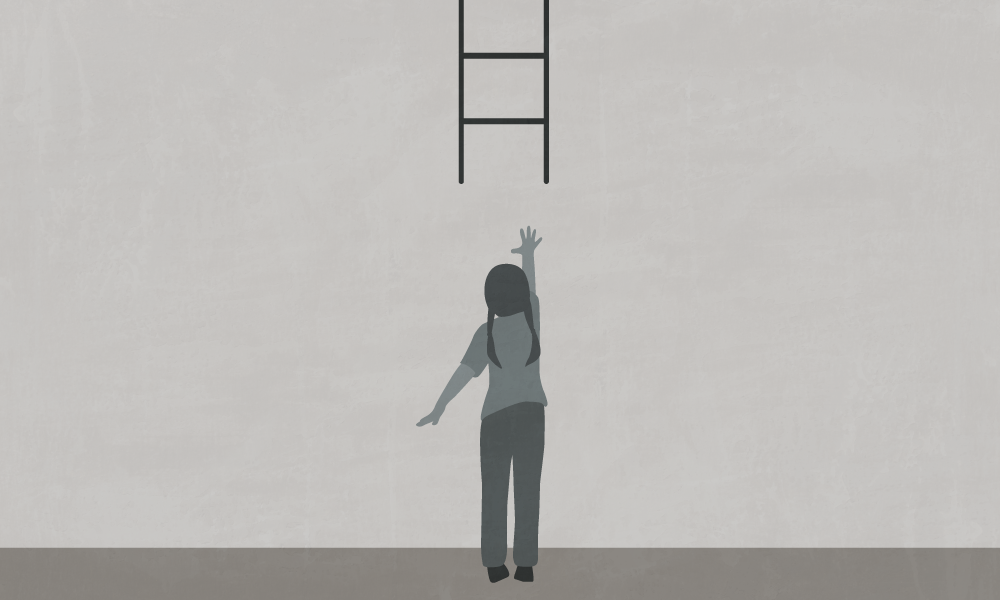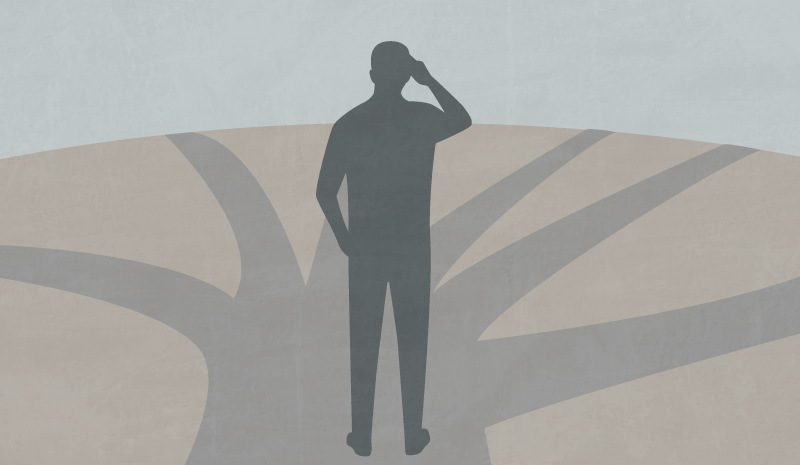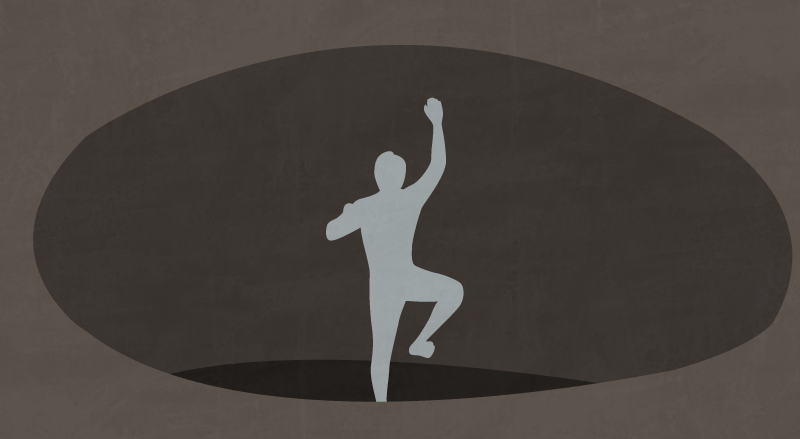I remember reading Ben Carson’s Gifted Hands back in fourth grade. The follow-up to that was going to see the play at a local theater. Though lost on me at the time, I realize now that there was a reason why we were encouraged, as inner-city youth, to get into Ben Carson. He was someone the adults wanted us to look up to. He had “pulled himself up by his boot straps,” with the assistance of his illiterate mother and food stamps, of course. I was at the age where I was eager to collect role models, and I found most of them in books, so I kept Carson’s story in mind for encouragement, re-reading it on my own once or twice.
There were some parallels between Carson’s life and my own that might have drawn me to him. My mother was fairly strict, and even after she went to prison, my brother and I lived with a Seventh-day Adventist family who also had very conservative guidelines on how everyone should live. I spent most of my life in predominantly white schools, so I was no stranger to the toll racism can take on a student. The dwindling number of black classmates as the years progressed was also an indication. Unlike Carson, violence had never been an issue for me, and though my grades were not always the best, I was a bookworm and was praised heavily for it. Since most people around me didn’t read, it didn’t matter that I was mostly reading fluffy romance novels. Just being a kid that was willing to pick up a book meant something. Stories like Carson’s were comforting to me because I knew people measured my worth by how smart they believed me to be. Being smart meant that you were going places, though no one ever specified where those places were.
Fast forward to 2017, and I view Ben Carson in a vastly different light than I did back then. His story is not comforting or encouraging anymore. It’s just a story; everyone has one. In some ways, his story is not even a very good one, as we use stories to develop empathy and understanding for humanity. Carson seems to have little of either. I don’t look up to him or admire him anymore. I doubt he’s changed much since he wrote Gifted Hands, but my views on him have changed because I have. I am on the other side of college, that “golden ticket” that people love to shove down the throats of inner-city kids. Where I messed up, in a person like Carson’s eyes, is that I did not go for pre-med or pre-law or even business. Instead, I studied something I was actually interested in: writing. I’ve been paying for that ever since, and it’s not because I’m not good at it or that I don’t work hard. This is what’s frustrating about Ben Carson’s line of thinking.
Carson has managed to achieve “The American Dream,” and has seemingly little interest in acknowledging why most people living in poverty never will. As someone who owes his success at least in part to government assistance, he now wants to pull the ladder up behind him. This man, who once pulled a hammer on his own mother in an argument over clothing, now says that “the community has to recognize that a thug is a thug.” But was a thug recognized as a thug when Carson himself, at 14, tried to stab someone? “It’s very disingenuous,” Carson said, “when you take someone who is doing illegal things and try and make them into a hero. What message does that send?” I don’t think Carson needs to worry too much about being revered a hero anymore, at least not in my book.
Carson’s rhetoric is full of exceptionalism: “You take somebody with the wrong mindset, you can give them everything in the world (and) they’ll work their way right back down to the bottom.” It leads to questions like who determines who has “the right mindset?”Are the children from the ghetto or trailer parks who have decided they want to be neurosurgeons the only ones worthy of food? Must the arts be relegated to a class that can afford to produce them?
The reality is that Ben Carson is not the exception he believes himself to be. That his hands were gifted at something that afford him financial success doesn’t speak to him being naturally smarter or harder working than anybody else. It speaks to how society views the work of surgeons. In the film version of Gifted Hands, Carson’s mother says to him that the life of mopping floors in a factory is not the life that she wants for her son. Her reasoning for this isn’t that the work is unnecessary but that it’s not valued.
Many poor people want to work and do work. The reason why they don’t achieve similar financial success to Carson’s is that the work they do is undervalued in society. Everyone wants clean toilets; no one wants to clean them. Everyone wants the convenience of fast food; no one wants to pay the people who serve it a living wage. Everyone wants cartoons, theme parks, toys, and video games for their children; no one wants to pay the artists who produce them.
Even as a college graduate, I struggled for years for different reasons. My family lost our home, and many of our personal belongings, to eviction. I didn’t have a strong support system. Everyone in close proximity had their own problems and didn’t have the money to solve them. Most of my money went to paying to stay alive, and I had to earn it through unfulfilling work that was totally unrelated to the career goals I had for myself. The rest of my money went to paying for my education. Every now and then maybe I would see a movie. Things are getting better, but it is a slow progression, and it’s not terribly likely that I will ever see neurosurgeon money. This is not because I don’t work as hard as any neurosurgeon, though. Despite the setbacks, I’ve also experienced a lot of privileges that most of my peers in poverty have not. Again, this is not due to any specialness on my part or any favoritism from God. It is mostly due to luck and a willingness to ask for help.
I think reasonably educated people, as well as undereducated people who are currently experiencing poverty, understand that poverty is a systemic problem. It can’t be wished away by simply believing that you don’t want to be poor. It can’t even be worked away, as most people who live in poverty and benefit from government aid are still working Americans. Whatever hole you are born into is the one you spend your life trying to work your way out of. Government assistance, that ladder that Carson wants to pull up behind him, is one of the main tools that anyone who makes it out uses.
What Carson’s statement did make me think about was my own experience growing up in poverty, adjacent to very wealthy people. I was miserable in elementary school and middle school because I compared myself to those rich kids. Just going to the school was a struggle because I had to travel all the way across town. I woke up sad about what I didn’t have. I started selling candy out of my cubby when I was nine, partially because I didn’t want to be poor. Yes, it was a concern for me even at that age.
In high school, I emerged from wallowing in my own struggles to actually paying attention to the people around me. I began to notice that a lot of those rich kids had the exact same problems as people I knew in the hood. Some of them had become alcoholics and drug addicts even before we started as freshmen. I had a good friend who cut her wrists and thighs regularly. She lived in a mansion and her family owned another on the eastern shore. Years after I had graduated, I saw a viral video of a girl giving fellatio in the hallway of a local public school. It reminded me of when some kids from my private school got suspended for doing the very same. During my freshman year of college, I remember hearing about a graduate who had committed suicide. A few years later, another girl, the sister of someone in my graduating year, followed suit.
So yes, there is something to be said about mindset, but not in relation to poverty. Most people who live in poverty were born into it. That there is the occasional exception, like Ben Carson, or Oprah, or Tyler Perry, does not negate the fact that most people in poverty will always live in poverty. Daydreaming about being rich doesn’t change that. Even working hard may not change that. Still, I don’t believe it is impossible to live a fulfilling life while living in poverty, just as one can have an unfulfilling life while being rich. People are suffering in the mind everywhere, either self-inflicted, as mine was, or from mental illness. And while a lack of access to treatment can result from poverty, it is poverty that is exacerbating the illness, not the other way around. In terms of what I was going through, there is a suffering in the mind which does not make people financially unstable, but it can make them miserable. So from one poverty-stricken citizen to anyone else living in poverty that might care, keep your head up; there is some good in every day. And to the middle-class or wealthy people who like to pretend they know poor people better than we know ourselves — mind your business. •
Images created by Shannon Sands.






